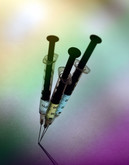Biosimilars
Nova Scotia, Canada implements biosimilar switching policy
Nova Scotia becomes the fifth Canadian province to implement a biosimilar switching policy, meaning that half of Canada’s provinces have now implemented such policies.
The US needs to learn from Europe to increasing access to biosimilars
Europe has been leading the way when it comes to encouraging the use of biosimilars. This is especially true in Scandinavian countries, such as Norway, which are seen as leading the way when it comes to switching and substitution of biosimilars in Europe [1]. In fact, an analysis by Norwegian researchers has found that ‘tremendous savings’ could be realized in the US should the country implement similar strategies [2].
EMA recommends approval of teriparatide and pegfilgrastim biosimilars
The European Medicines Agency’s (EMA) Committee for Medicinal Products for Human Use (CHMP) announced on 28 January 2022 that it had recommended granting of marketing authorization for the teriparatide biosimilar Sondelbay and the pegfilgrastim biosimilar Stimufend.
Amgen predicts a steady flow of biosimilar launches
Amgen CEO Robert Bradway predicted expanding the company’s biosimilars business with a steady flow of biosimilar launches at the J.P. Morgan Healthcare Conference, which was held on 11 January 2022.
Biosimilars approved in Colombia
In Colombia, the regulatory body for the approval of biologicals is the National Food and Drug Surveillance Institute (Instituto Nacional de Vigilancia de Medicamentos y Alimentos, INVIMA).
Real-world utilization of adalimumab biosimilar ABP 501
In a poster presentation at the virtual Crohn’s & Colitis Congress, which took place on 20‒22 January 2022, a study describing real-world utilization of adalimumab biosimilar ABP 501 in patients with inflammatory bowel disease (IBD) in Europe was presented [1].
Lupin forms partnership to market pegfilgrastim biosimilar in Brazil
Indian multinational pharmaceutical company Lupin Ltd (Lupin) has signed an agreement with Brazilian firm Biomm SA to distribute and market a pegfilgrastim biosimilar in Brazil. In related news, Indian firm Gland Pharma has announced plans to enter the market for biosimilar manufacturing.
Applications for adalimumab and trastuzumab biosimilars submitted to FDA
Korea-based Samsung Bioepis and partner US-based Organon announced on 5 January 2022 that the US Food and Drug Administration (FDA) had accepted the application for their proposed citrate-free, high-concentration (100 mg/mL) adalimumab biosimilar (SB5). A low-concentration formulation of SB5, Hadlima (adalimumab-bwwd), was approved in the US in July 2019 [1].
The impact of insulin biosimilars on the diabetes landscape
The cost of diabetes care in the US continues to rise, with insulin accessibility and affordability a particular concern for providers and patients. Increased competition from increased availability of insulin biosimilars may help address these issues.
Northwest Territories, Canada announces biosimilars switching policy
The Northwest Territories (NWT) has become the fifth jurisdiction in Canada to implement a biosimilars switching policy. The policy begins from 21 December 2021 and includes 10 biologicals.













